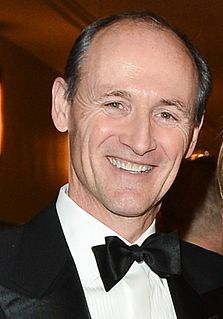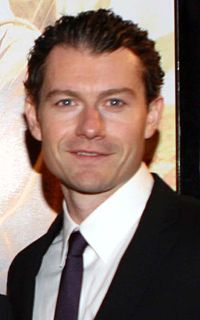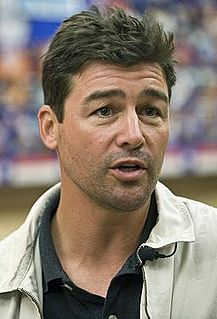A Quote by Colm Feore
On '24,' it says on the front page of your script: 'This script is for the production staff and cast. Please don't show it to anybody else.'
Quote Topics
Related Quotes
The way I pick movies is, first, if the script is any good. Then, if the script is good, who else is in it, the director, the producer, all that. If you have all that, there's a chance the movie will be great. If the script isn't right, or the director or cast isn't right, you've got no shot in hell.
We see only the script and not the paper on which the script is written. The paper is there, whether the script is on it or not. To those who look upon the script as real, you have to say that it is unreal - an illusion - since it rests upon the paper. The wise person looks upon both paper and script as one.
As we were negotiating, I didn't have a script. Once the deal is closed, they let you read the script. So, I got the script and was reading it like, "Oh, please be good!," because I'd already signed on the dotted line. And I read it and just went, "Okay, I'm going to be okay. Thank god!" It was a really funny, moving story.
When you try to be true to the script, changes occur. A script is there to show us a certain direction. But when you actually have the actors in and you start shooting the movie, you have the actor say a line and it doesn't sound right so you change it and make it different. It's the script that gives birth to these changes and the more you try to stay true to the script, the more that happens.
There were a lot of lessons of production to be learned. On the page, the biggest thing you learn on any TV show is how to write to your cast. You write the show at the beginning with certain voices in your head and you have a way that you think the characters will be, and then you have an actor go out there, and you start watching dailies and episodes. Then, you start realizing what they can do and what they can't do, what they're good at and what they're not so good at, how they say things and what fits in their mouth, and you start tailoring the voice of the show to your cast.
It's not about the script: it's about who the director is and who the other people in the cast are. Because you can look at a great script and execute it in a very sophomoric way, and you can look at an OK script, and you can execute it in a very sophisticated way and come out with something really good.
Any good movie or script usually, if they're doing their job, gives the highest platform possible for an actor to leap off of, and that script was very high up there. It was a very smart, tight script. There was a lot of improv, as well, once we got to the set, but a lot of the original script was also in there.




































